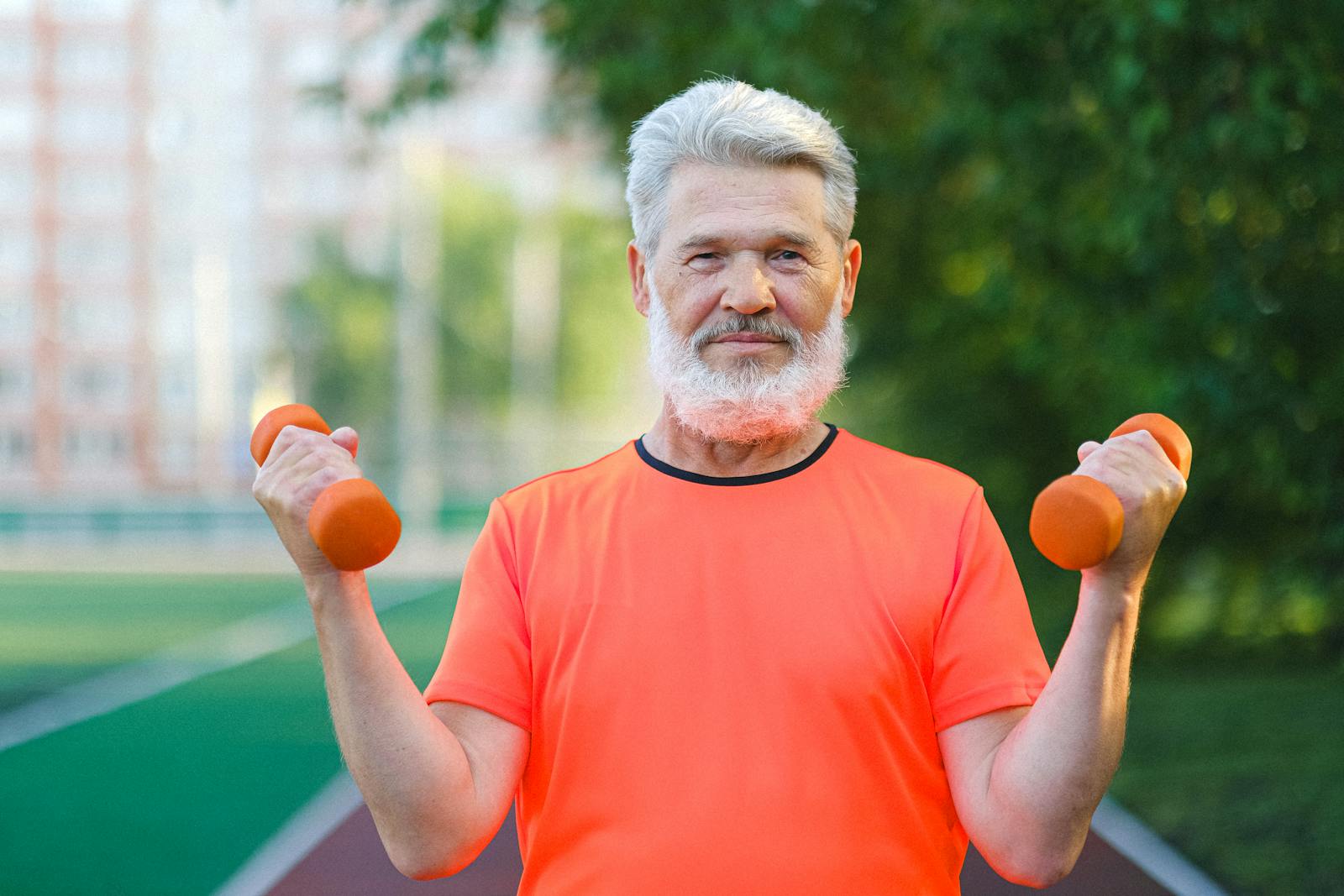Age is just a number, especially when it comes to fitness. No matter how old you are, starting a fitness journey is one of the best decisions you can make for your health, well-being, and overall quality of life. Whether you’re 50, 60, or even 80, it’s never too late to begin reaping the benefits of regular exercise. If you’ve been hesitant to start because you think you’re too old, this post is here to encourage you and show you why it’s never too late to prioritize your health and fitness.
The benefits of regular physical activity are well-documented and universally applicable, regardless of age. Starting a fitness routine later in life can significantly improve your physical health, mental well-being, and overall quality of life. Engaging in regular exercise helps improve strength and mobility, which is crucial as we age. Maintaining muscle mass and joint flexibility becomes increasingly important to reduce the risk of falls and injuries. Regular strength training and mobility exercises can help preserve muscle mass, increase bone density, and keep joints healthy, ensuring you stay independent and active.
Cardiovascular health also benefits greatly from regular exercise. Cardiovascular exercises such as walking, swimming, or cycling can strengthen your heart and lungs, improving your circulation and endurance. Regular cardio can lower your risk of heart disease, high blood pressure, and stroke, allowing you to enjoy a healthier, longer life.
Exercise is not just good for the body; it’s also beneficial for the mind. Physical activity releases endorphins, the body’s natural mood elevators, which can help reduce feelings of anxiety and depression. Additionally, regular exercise can improve cognitive function, memory, and even slow the progression of age-related cognitive decline. It may seem counterintuitive, but being active can actually boost your energy levels. Regular exercise improves your overall stamina and reduces feelings of fatigue. Over time, everyday tasks become easier, and you find you have more energy to do the things you love.
If you’re worried that you’ve missed the boat on fitness, think again. Studies have shown that people who start exercising later in life can still experience significant health benefits. Whether you’ve been inactive for years or have never exercised regularly, it’s never too late to start making positive changes. One of the keys to starting a fitness routine at any age is to start small and build gradually. There’s no need to dive into intense workouts right away. Begin with activities that you enjoy and that match your current fitness level. This could be anything from taking a daily walk around the neighborhood to using light weights for strength training.
As you start your fitness journey, it’s important to listen to your body and avoid pushing yourself too hard, especially in the beginning. Pay attention to how you feel during and after exercise, and adjust your routine accordingly. If you experience any discomfort or pain, take a step back and consider speaking with a healthcare professional for guidance. Setting realistic, achievable goals is crucial to staying motivated and committed to your fitness routine. Instead of focusing on drastic changes, aim for steady progress. Whether your goal is to walk a certain distance, lift a certain amount of weight, or simply move more each day, having a clear objective can keep you on track.
Remember to celebrate your progress, no matter how small it may seem. Every step you take towards a healthier lifestyle is a victory. Acknowledge your efforts and use your successes as motivation to keep going. While the physical benefits of exercise are significant, fitness also plays a vital role in emotional and social well-being. Engaging in regular physical activity can help you feel more connected, confident, and content with life.
Achieving your fitness goals, no matter how modest, can lead to a tremendous boost in confidence and self-esteem. As you notice improvements in your strength, endurance, or flexibility, you’ll likely feel a greater sense of accomplishment and self-worth. This renewed confidence can positively impact other areas of your life, from social interactions to pursuing new hobbies or activities. Fitness can be a great way to connect with others and build a sense of community. Whether you join a local walking group, take a group fitness class, or simply start exercising with a friend, staying active can help you meet new people and foster meaningful relationships. These social connections can be particularly valuable as we age, providing support, motivation, and companionship.
For many people, starting a fitness routine provides a renewed sense of purpose. It gives you something to work towards and look forward to each day. This sense of purpose can be incredibly fulfilling, giving your life structure and meaning, especially during retirement or after major life changes. It’s natural to feel apprehensive about starting a fitness routine later in life, but the barriers you might face are often easier to overcome than you think.
One of the most common concerns for older adults starting a fitness routine is the fear of injury. While it’s important to exercise safely, many activities are low-impact and gentle on the body, reducing the risk of injury. Consider starting with exercises that focus on balance, stability, and controlled movements. Strength training with light weights or resistance bands can also help build muscle without placing excessive strain on joints. Staying motivated can be challenging at any age, but there are several strategies to help keep you on track. Finding an exercise routine that you enjoy is key to staying committed. Additionally, setting small, achievable goals and celebrating your progress can keep your motivation levels high. If you’re struggling, consider finding an exercise buddy or joining a group to add a social element to your workouts.
If you have a pre-existing health condition, it’s important to consult with your healthcare provider before starting a new exercise routine. They can help you design a program that is safe and effective for your specific needs. Many health conditions, such as arthritis, diabetes, and heart disease, can actually improve with regular physical activity, so don’t let a diagnosis hold you back. Starting a fitness routine in a new environment, such as a gym or fitness class, can feel intimidating. However, remember that everyone was a beginner at some point, and most people are focused on their own workouts. If the gym isn’t for you, consider exercising at home or outdoors in a familiar, comfortable setting.
The best time to start your fitness journey is now, regardless of your age. Embracing a healthy, active lifestyle can enhance your physical health, boost your mental well-being, and add joy to your life. Every step you take, no matter how small, brings you closer to a stronger, healthier, and happier version of yourself. Remember, it’s never too late to start prioritizing your health and fitness. The benefits of regular exercise are available to everyone, regardless of age or fitness level. By starting now, you’re investing in your future, improving your quality of life, and setting an example for those around you. So lace up those sneakers, take that first step, and embrace the journey ahead. You’re never too old to get started in fitness, and the best time to begin is today.





